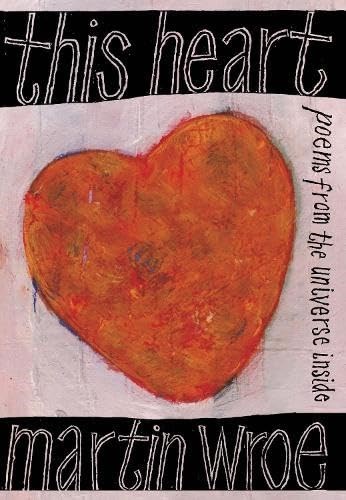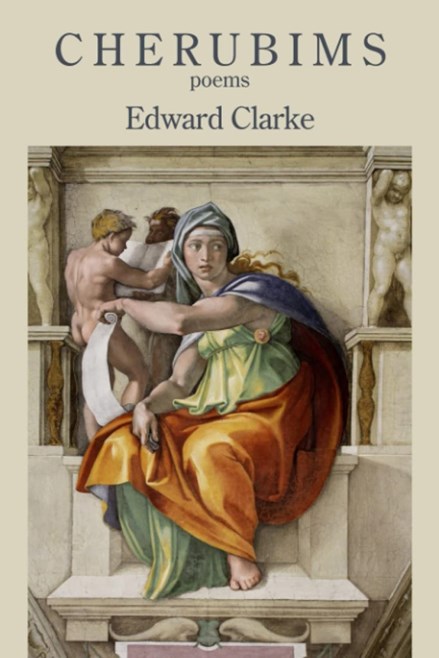CONSOLATION is a rare quality in our tragic times, but sometimes poetry can provide a sanctuary. Bloodaxe Books, which often sets a creative pace in poetry publishing, offers “nourishing poems of hope and light” in its anthology Soul Feast. This gathers roughly 100 poets from many countries into an ambitious collection, edited by the Bloodaxe founder Neil Astley, and the artist, filmmaker, and translator Pamela Robertson-Pearce.
Each poem feels chosen with intelligence and care: accessibility matches profundity. Tones of voice are varied and intriguing, from the wry Romanian of Marin Sorescu to the defiant flamboyance of Rosemary Tonks, through the weaving images of the Swedish Nobel laureate Tomas Transtromer and the concluding optimism of the Irish scholar and translator Derek Mahon. He is breezy here (“Everything is going to be all right”), though being noted as an explorer of “themes of isolation, aloneness and alienation” in “Notes on the Poets”, which give context to their contributions.
These are never poems of simplistic pietism; for many emerge from endured experience, sacrifice, and cost.
Broken-heartedness is the beginning
of all real reception.
The ear of humility hears beyond the gates.
See the gates opening. . .
as Jack Hirschman writes in “Path”.
Or, as in the Hebrew poet Tuvia Ruebner’s “Wonder”:
A human being can bear almost everything
and no one knows when and where
happiness will overcome him.
Few of these poets are formally “religious”, but together they offer a hospitable meeting-place for the fluent sharing of compassion. Sorrow is to be embraced as offering fresh understanding, not least within the alternative cathedrals of the natural world, argue many of these profound writers, reporting back from the raw edges of emotions. “Sometimes even God is so lonely he weeps,” notes the Korean poet Jeong Ho-seung in a searching anthology that is both elegy, and celebration.
The radically different environments of London’s Holloway Road and Scotland’s holiest island, Iona, provide the launch pads for Martin Wroe’s poetry collection This Heart.

Wroe brings an impressive journalistic pedigree, as a former staff writer on The Observer and The Independent, to the poems that he tries to write daily in a local coffee shop. An associate member of the Iona Community, he also contributes to Thought for the Day on BBC Radio 4.
This varied spiritual biography brings a grounded, approachable quality to his work, in which faith, like the words expressing it, feels hard-earned. He avoids easy answers, and most punctuation, as in the apparently unfinished “Poem started on a birthday”, which concludes:
Birthday morning, the café buzzing
Here we go again, once more round the sun
Each year missing one more loved one
Sitting here, alone, all of a sudden[.]
Insistent consumerism, ageing, and reflective poetry-as-prayer jostle through the pages in open-hearted post-Evangelicalism. Nods to Yeats and R. S. Thomas notwithstanding, a sense of search and stoicism also echoes the paperback poets of the 1960s.
Edward Clarke’s two young sons inspire the “cherubims” of his technically adept collection, while also providing a motif for the poet’s task of both observing, and interpreting.
Clarke’s poems balance the boys’ carefully observed physical liveliness and emotions with the stilled responsibilities of image and representation. He reminds us that poetry demands both image and analysis. As the collection progresses, too many poems become about the business of writing. For all the facility of technique, such poems become rather tedious: object defeats subject.

Music and majesty are drained from the Hebrew psalms by Toddy Hoare’s attempts, in Psalmody, to re-cast them as contemporary sonnets. He quotes the dilemma: “Where is God in any situation?” as guiding his responses, though these stumble rather than sing. For all its industry, this collection fails to engage with the intrigue of his overall exploration. Eccentric line-breaks, struggling for rhymes, make many poems simply awkward. Hoare adds a further 55 sonnets on other “matters spiritual”, including Palestine, euthanasia, and Classical Greece, but his plodding style and intrusive archaisms blunt the effectiveness of the work.
Matthew White also takes reference from the honesty of the Psalms to offer poems as aspects of prayer and potential in his debut collection Propelled into Wonder. These “poems of a priest” confront life with Hebraic honesty — a child’s funeral, God among the homeless, the stresses and strains of priestly vocation — and yet also find consolation in landscape and family affection. White experiments with various themes and styles, and is prone to the Over-Poetic (“And now my father’s pens to me bequeathed. . .”), but launches a rewarding literary search.
Dr Martyn Halsall is a poet and journalist. His latest poetry collection is Lent (Wild Goose Publications, 2025).
Soul Feast: Nourishing poems of hope and light
Neil Astley and Pamela Robertson-Pearce, editors
Bloodaxe £12
(978-1-78037-706-3)
Church Times Bookshop £10.80
This Heart: Poems from the universe inside
Martin Wroe
Wild Goose Publications £10.99
(978-1-80432-382-3)
Church Times Bookshop £9.89
Cherubims
Edward Clarke
Kelsay Books £18.83
(978-1-63980-235-7)
Church Times Bookshop £16.94
Psalmody: Thoughts on the Psalms and other matters spiritual
Toddy Hoare
Resource Publications £12
(979-8-3852-3596-4)
Church Times Bookshop £10.80
Propelled into Wonder: Poems of a priest
Matthew White
Resource Publications £9
(979-8-3852-1999-5)
Church Times Bookshop £8.10















